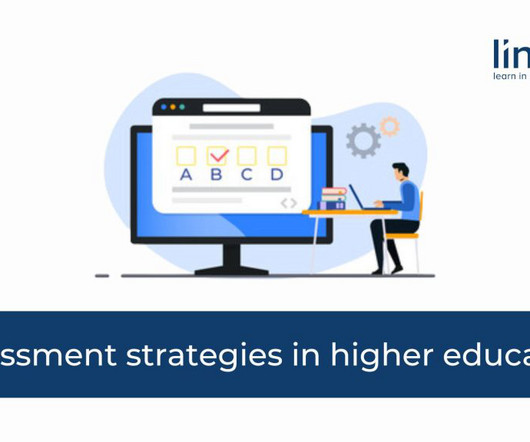Stop Asking About Completion Rates: Better Questions to Ask About MOOCs in 2019
Edsurge
NOVEMBER 28, 2018
As an instructional designer who has been building MOOCs for the past five years, I’ve been asked this question more times than I count. MOOCs have been called abysmal , disappointing failures. The average completion rate for MOOCs (including the ones I design) hovers between 5-15 percent. This skepticism is not unwarranted.


































Let's personalize your content